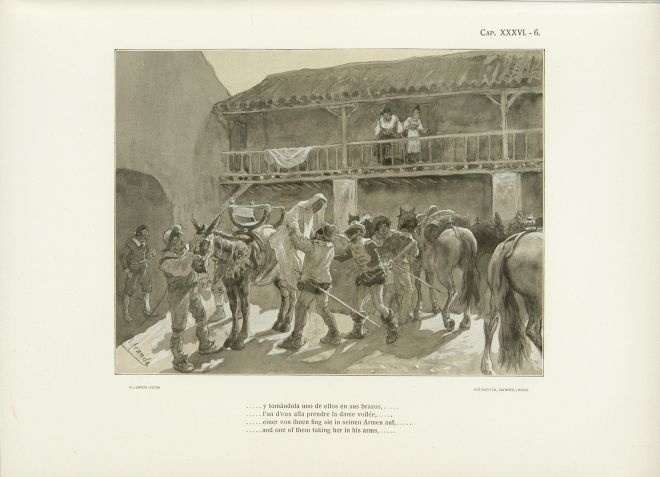
click to enlarge
One of the newly arrived gentlemen (don Fernando or one of his companions; all wearing masks) helps Luscinda to dismount in the inn yard; also int he scene, their grooms, the innkeeper's wife and her daughter and the barber.
Remarkable group of figures, with good and natural variety of gestures, and remarkable composition.
Great interest in representing real Spanish characters and accurate period clothes, setting and details.
Jiménez Aranda's drawing skill is masterly; remarkable use of light and shadow with impressionist effects.
2 - "Esta nueva novela episódica […] no dió al pintor realista tan buenos motivos como la novela principal; pero supo tratar con elegancia los caballeros, dar misterio á la tapada, vida á la escena de apearse los viajeros y retirar los mozos las caballerías, y movimiento á la acción dramática. Tres dibujos nos impresionaron en ésta: es uno el que representa á Dorotea, vencida por el llanto, á los pies de Luscinda; es otro el momento de exclamar el caballero entre las dos mujeres, ¡Venciste, Dorotea!, y el tercero la efusiva escena en que Dorotea, aún arrodillada, abraza á su amante por las rodillas" (José Ramón Mélida: “Don José Jiménez Aranda y su "Quijote"", vol. I TEXTO, pp. L-LI).